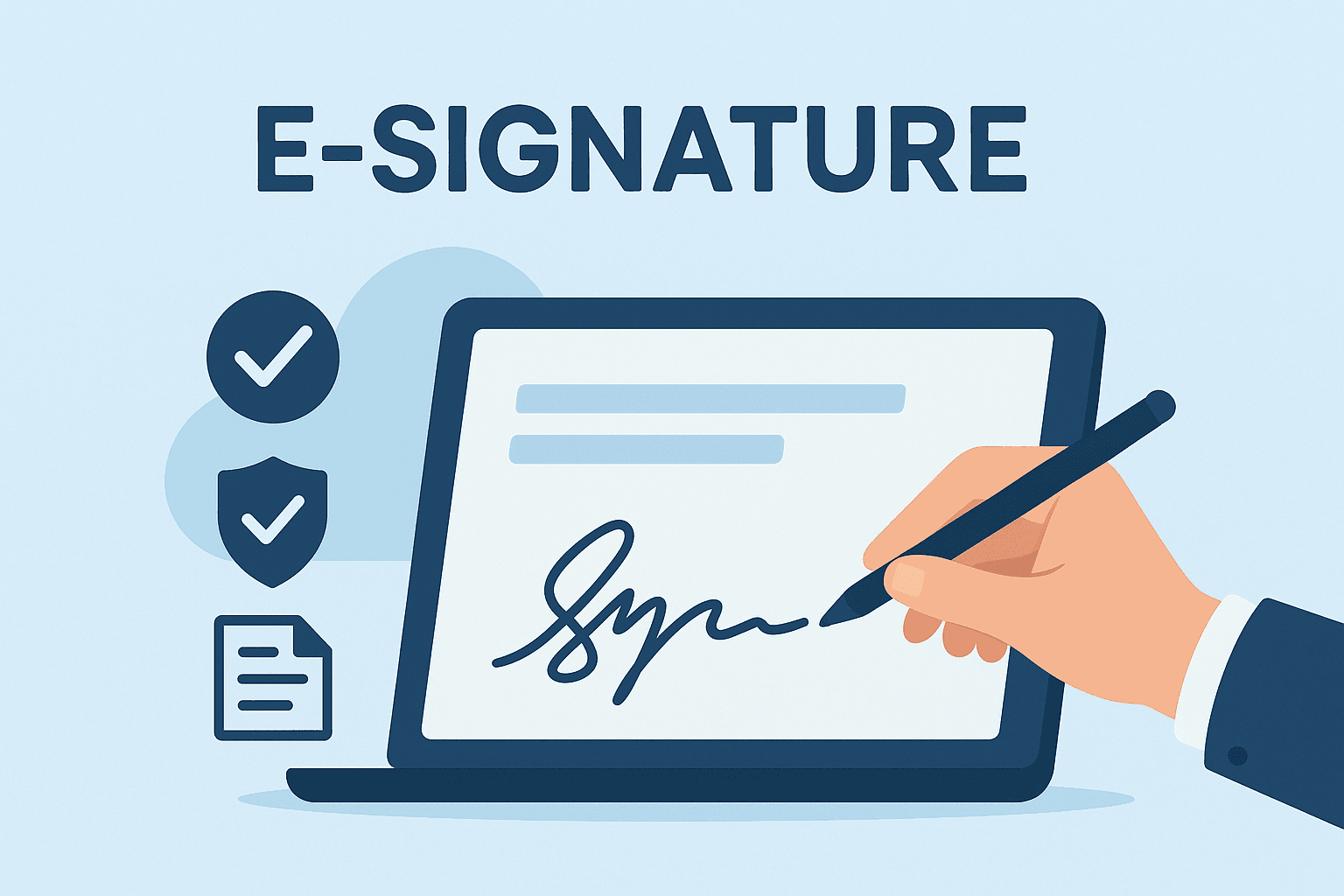are electronic signatures allowed in real estate transactions





Are Electronic Signatures Allowed in Real Estate Transactions?
As the real estate industry continues to digitize, electronic signatures (commonly referred to as e-signatures) have become an essential tool for accelerating transactions, reducing paperwork, and streamlining communication between parties. Buyers, sellers, agents, and lawyers increasingly turn to digital solutions to close deals more efficiently. But many are left asking the same critical question: Are electronic signatures allowed in real estate transactions?
The answer depends significantly on the jurisdiction in which the transaction takes place. This article explores the legality of electronic signatures in real estate, paying close attention to local terminologies and regulations, particularly relevant to users in Hong Kong and Southeast Asia.
What Is an Electronic Signature?
Before diving into legal frameworks, it’s important to understand what constitutes an electronic signature. An electronic signature is any electronic process that indicates acceptance of an agreement or record. This includes typing your name, uploading a scanned signature, or using stylus-based signature pads.
In most jurisdictions that recognize e-signatures, they are considered legally binding, provided certain conditions are met. The legal frameworks that govern electronic signatures often distinguish them from digital signatures, a more secure, encrypted form of authentication.

Legal Frameworks Supporting E-Signatures in Real Estate
United States
In the United States, the primary legislation validating electronic signatures is the E-SIGN Act (Electronic Signatures in Global and National Commerce Act) and the Uniform Electronic Transactions Act (UETA). Under both laws, electronic signatures are fully enforceable for real estate contracts, including purchase agreements, leasing contracts, and disclosures.
European Union
The EU’s eIDAS Regulation (Electronic Identification, Authentication and Trust Services) governs the use of electronic signatures across member states. Real estate transactions can utilize Standard or Qualified Electronic Signatures (QES), depending on the jurisdiction and document type requirements.
Hong Kong
Hong Kong recognizes electronic signatures under the Electronic Transactions Ordinance (Cap. 553). This ordinance stipulates that a document signed electronically is legally valid, provided:
- The signing method identifies the person and indicates their approval.
- The method is reliable and appropriate for the intended purpose.
- If there’s a legal requirement for a signature, it must comply with additional guidelines under the ordinance, particularly for certain property-related documents where a “digital signature supported by a recognized certificate” may be required.

Note that in Hong Kong, while most real estate agreements can be signed electronically, some property transfer documents (like those registered with the Land Registry) may still require wet-ink signatures to meet statutory obligations.
How About Southeast Asia? Local Terminology and Laws Matter
Laws across Southeast Asia differ depending on the country, and understanding these regulatory nuances is crucial when closing cross-border property deals or managing regional operations.
Singapore
The Electronic Transactions Act (ETA) legalizes electronic signatures for most agreements, including real estate documents, although certain exceptions apply to deeds and wills. The use of electronically signed tenancy agreements is common and legally accepted.
Malaysia
Malaysia’s Digital Signature Act 1997 and Electronic Commerce Act 2006 together ensure that e-signatures are recognized in contractual settings, including leasing and sale documents. However, land title transactions registered with the Land Office may still require manual processing.
Thailand
Thailand’s Electronic Transactions Act B.E. 2544 allows the use of electronic signatures, but, similar to other countries in the region, certain land and title transactions registered with the Land Department might still require physical documents.
Indonesia
Indonesia’s Law No. 11 Year 2008 (ITE Law) and its subsequent amendments support electronic signing, especially for e-commerce and contract agreements. However, legal practitioners recommend additional verification for real estate contracts involving property titles and land transactions.

Are There Any Limitations?
Even where e-signatures are legally recognized, not all documents within the real estate transaction process fall under digital acceptance.
Some common exceptions include:
- Documents requiring notarization or registration with local government bodies.
- Mortgage deeds and land title transfers that may involve manual submission.
- Contracts that local law requires to be processed via specific procedural steps (e.g., the Hong Kong Land Registry or Malaysia’s National Land Code procedures).
In such cases, wet-ink signatures or physical filing may still be necessary. Therefore, compliance with local authority regulations remains essential.
Are E-Signatures Secure and Fraud-Proof?
Security is a common concern for users adopting electronic document workflows, especially in high-stakes real estate deals. Using reputable electronic signature platforms ensures that:
- Signers are authenticated.
- Audit trails are maintained.
- Documents are tamper-evident.
- Encryption keeps sensitive data safe.
Platforms compliant with eIDAS, ESIGN, UETA, and regional equivalents across Asia will typically include these security features.

Recommended Best Practices
To ensure your electronic real estate transactions are lawful and enforceable, follow these tips:
- Check Jurisdiction: Confirm whether electronic signatures are permitted for your document type in the specific country or region.
- Use Trusted Providers: Select e-signature platforms that are compliant with local laws and offer encrypted storage and multi-layer authentication.
- Maintain Records: Store a full audit trail and retain digital copies of signed documents securely for future reference.
- Register If Required: Where physical filing is still a legal requirement (e.g., with a land registry), prepare to convert digital documents to hard copies or follow hybrid workflows.
- Verify Signatory Authority: Always confirm that all parties to the deal have proper signing rights, especially in business or corporate real estate deals.
Choosing the Right Digital Signature Platform in Asia
For users in Hong Kong and Southeast Asia, finding an electronic signature provider that aligns with both international standards and regional legal frameworks is crucial.
While global platforms like DocuSign are popular, users should also consider platforms built with strong compliance for regional jurisdictions. eSignGlobal is one such solution, acting as a Docusign alternative and designed for Asia-Pacific needs.
eSignGlobal supports regional compliance with:
- Hong Kong’s Electronic Transactions Ordinance
- Singapore’s ETA
- Malaysia’s Digital Signature Act
- Indonesia’s ITE Law
eSignGlobal offers localized language support, cross-border document compatibility, and a high level of encryption for sensitive real estate documentation.

Conclusion
So, are electronic signatures allowed in real estate transactions? Yes—but with regional nuance. Most jurisdictions across the globe—including Hong Kong and many Southeast Asian countries—legally recognize electronic signatures. However, certain real estate documents may still require wet-ink signatures or physical submission for land registration or government verification.
For those navigating the real estate market in Hong Kong or Southeast Asia, it is essential to verify applicable electronic signature laws and document types, and to choose a compliant e-signature platform like eSignGlobal for peace of mind and legal clarity.

 Only business email allowed
Only business email allowed


